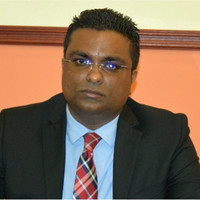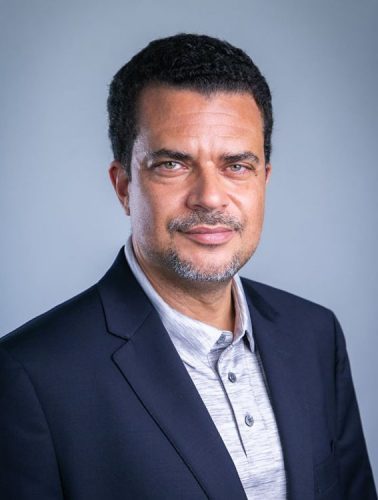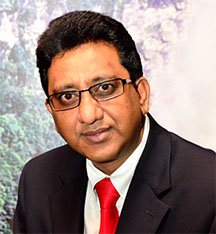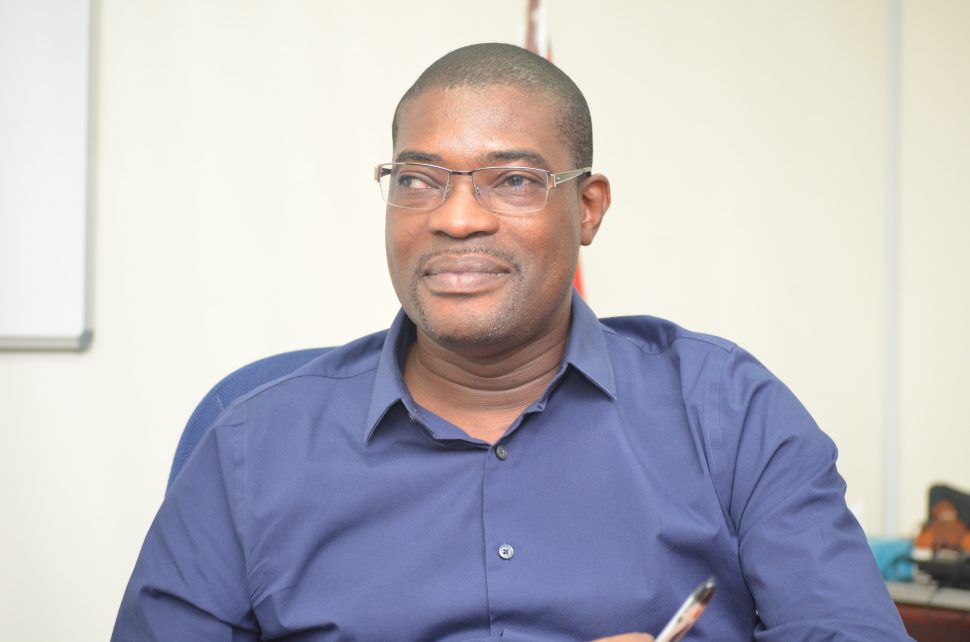Following another series of meetings, the Guyana Elections Commission (GECOM) is expected to meet today to finally set a date for the start of a recount of the votes cast at the March 2 elections.
Beginning at 10.30 am yesterday, the Commission met with the parties that contested the polls and the majority sought to lobby for the recount process to be broadcast live in the interest of ensuring transparency.
“All of the participants except for the incumbent APNU+AFC have advocated for [live steaming],” opposition-nominated commissioner Sase Gunraj told reporters following the meetings.

He noted that each party provided its own justification for the request, with the presidential candidate of the People’s Republican Party keenly highlighting that “fraud festers where there is something to hide.”
According to Gunraj, she called for live streaming as it would serve as a deterrent to those who would attempt to duplicate what happened at the Region Four tabulation centre in early March, which resulted in the derailment of the final declaration of results.
Timothy Jonas, of A New United Guyana (ANUG), also stressed that live streaming is important for transparency.

“At the end of the day, whether you are happy with the results or unhappy with the results, I think we will all sit more comfortably if we saw the tabulation and know that it happened fairly,” he explained.
According to Jonas, the incumbent, however, rejected the suggestion of live streaming and asked that cellphones be controlled. The coalition, he noted, expressed a preference for intermittent public updates on the process.
AFC Executive David Patterson, along with APNU’s Joseph Harmon, Amna Ally and Carol Joseph, represented the coalition at the meeting. Speaking with reporters after the meeting, Patterson said the coalition is concerned about protecting GECOM staff from public attacks.
“I don’t think you would like me to come into your job [and] without permission to live stream you… I don’t want anybody coming into my office to live stream me without my permission or knowledge,” he said.
Patterson told reporters that the coalition was surprised that rather than providing an update on the start of the process the meeting saw the regurgitation of matters which the Commission has already decided.

GECOM Chair retired justice Claudette Singh has ruled twice so far that the process would not be live streamed. She has referenced Section 90 of the Representation of the People’s Act (RPA), which calls for those present at the counting to keep secret the number of votes cast for any list of candidates.
“GECOM has made decisions and we have said we will support the decisions of the Commission. The Commission has gone past that…it is time we get the recount started,” Patterson stressed, before adding that his party would like a start date so that it can train its agents. The coalition would also like assurance that sufficient security will be in place to prevent an overrun of the tabulation centre.
The issue of security was also a concern of the People’s Progressive Party/Civic (PPP/C), which has called for private security.
“There should have some other agency supplementing the police,” PPP executive member Anil Nandlall said when he spoke with the media.
Sequential count
Nandlall also called for individual regions to be counted sequentially rather than four regions
simultaneously as the Commission has proposed.
“We were counting one region, Region Four, and look at the controversies that erupted. When you are counting 10 regions at a time that scenario can multiply itself 10 times. All we are saying is count Region One first, then Region Two, then Region Three…it’s simpler. Simplicity breeds transparency,” he stressed.
He, too, called for a timely indication as to the start date of the recount so that agents can be trained.
In supporting the call for a sequential count, Jonas noted that a simultaneous count will lead to confusion, which is the enemy of transparency.
“If you want this thing done as simply as possible with a record and a chain of custody so you see how the documents are moving back and forth, that won’t happen if you’re counting four regions at a time,” he argued.
This position was refuted by government-nominated Commissioner Charles Corbin, who told reporters there was unlikely to be any mix up.
“I suppose all of this would have informed the operation guidelines,” he said. “These locations are separate. The places where the workstations are physically removed. It is unlikely that if one region is in the east wing and another is in the west wing that there is likely to be any mix between them,” he added.
Jonas further noted that the parties with the exception of the incumbent have once again asked for all Statement of Polls to be made public so that everyone can see if the original count is vindicated.
“If it is vindicated, we are happy. But if the count is not vindicated then there needs to be some kind of accountability,” he said.
Following the meeting with political parties the commission met with the three-member CARICOM scrutineer team and offered a tour of the tabulation centre and a working paper prepared by the GECOM Secretariat.
Notably, both the Chief Election Officer (CEO) Keith Lowenfield and Deputy Chief Election Officer (DCEO) Roxanne Myers were absent from the meetings. Singh is said to have told those present that Lowenfield had a personal emergency while Myers was out of the region.
Their absence was criticised by the PPP/C even as Nandlall called for Lowenfield to be stripped of his statutory right to settle dispute which might arise during the tabulation.
The three-member Team is led by Cynthia Barrow-Giles, Senior Lecturer in the Department of Government at the University of the West Indies (UWI), and includes John Jarvis, Commissioner of the Antigua and Barbuda Electoral Commission and Sylvester King, Deputy Supervisor of Elections of St. Vincent and the Grenadines.
Barrow-Giles was a member of the five-member team which arrived for the aborted recount on March 15. She is the only member of that team to return as CARICOM has indicated that the other members were unavailable for the present mission, which is expected to last for 25 days. Jarvis and King were part of the 17-member CARICOM observer team which was in Guyana to monitor the general elections.
The first attempt to recount the votes from the general elections had been aborted after a candidate of the incumbent APNU+AFC went to court to block it and succeeded in obtaining an injunction. Upon the collapse of the mission, CARICOM Chairperson Mia Mottley warned that there were forces here trying to prevent the counting of all of the ballots from the elections. Ahead of the current mission’s arrival, Mottley said that a legitimate government depends on a transparent recount of votes.
On April 24, GECOM decided that the long-awaited recount will take approximately 25 days.
The number is, however, not “cast in stone” as the Commission has said it will review the timeline when necessary.
According to a draft order seen by this newspaper, the recount is expected to commence with Electoral Districts One, Two, Three and Four simultaneously and upon completion of Districts One, Two and Three it will be continued with Districts Five, Six, Seven, Eight, Nine and Ten parallel to the ongoing count of District Four.
Following the calculation of each of the 2339 ballot boxes, the tabulated results for the Regional and General Elections as well as a reconciliation report and account for the elections material herein itemized shall be recorded on a Statement of Recount.
These Statements of Recount for each district will then be tabulated at a central tabulation centre in the presence of the CARICOM high-level team and other stakeholders. This process is to be “projected on a screen to be viewed by all persons present,” with the information from each statement being simultaneously entered into a spreadsheet.
The team is then expected to be present for a tabulation of this spreadsheet and to prepare a final report parallel to that being prepared by Lowenfield.
The team’s report “may include their observations, recommendations, and conclusions which report may be considered by the Commission.”






